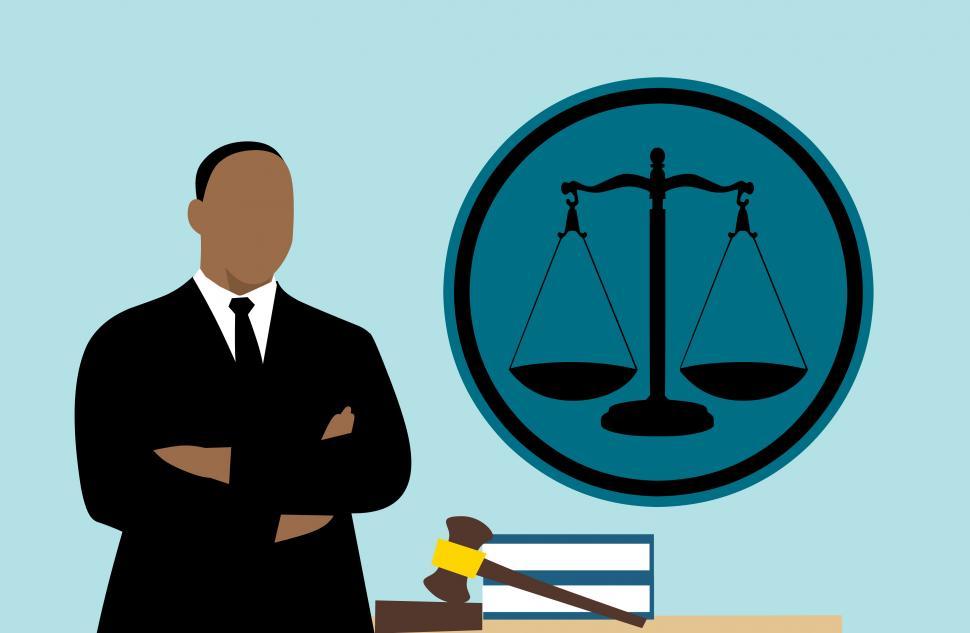Specialist Recommendations from Brownstone Appellate Law Firm: Texas Appeals Lawyers at Your Service
Specialist Recommendations from Brownstone Appellate Law Firm: Texas Appeals Lawyers at Your Service
Blog Article
Maximizing Your Allure: Exactly How Expert Assistance Can Enhance Your Appellate Approach
In the realm of appellate campaigning for, the importance of using expert help to fortify one's appellate strategy can not be overemphasized. By getting the competence of professionals skilled in the subtleties of appellate practice, companies and individuals can open a wide range of advantages that extend much past standard legal representation.
The Importance of Appellate Competence
When navigating the complex world of appellate legislation, possessing customized expertise in appellate procedures and methods is extremely important for attaining favorable end results. Appellate knowledge incorporates a deep understanding of the subtleties of appellate practice, which varies substantially from trial campaigning for. Appellate lawyers have to have an eager eye for lawful research study, persuasive writing, and dental advocacy abilities customized to the appellate court's details demands.
An appellate expert brings a distinct ability established to the table, refined through years of experience remaining and managing appeals abreast of developing legal precedents. This proficiency allows them to craft compelling legal disagreements, identify vital problems that reverberate with appellate judges, and expect and respond to opposing advise's disagreements successfully.
Furthermore, appellate specialists are well-versed in the complicated procedural rules regulating allures, ensuring that all filing target dates, formatting demands, and administrative problems are carefully complied with. By leveraging their specialized knowledge, appellate lawyers can browse the appellate process with precision and skill, maximizing their clients' possibilities of success on charm.
Strategic Evaluation and Instance Analysis
Structure upon the foundation of appellate competence, tactical evaluation, and instance assessment play critical roles in formulating a robust appellate approach. It requires a deep understanding of the lawful landscape, procedural policies, and possible debates that could guide the appellate court.
Situation analysis is just as vital, concentrating on assessing the legal and valid aspects of the case to determine its practicality on appeal. This procedure includes scrutinizing test court documents, proof, and judgments to determine mistakes or issues that can develop the basis of a successful appeal. A thorough case assessment allows lawyers to craft influential disagreements that attend to the core concerns and convince the appellate court to rule in their client's support.
In combination, strategic evaluation and instance assessment form the foundation of a reliable appellate method, leading attorneys in browsing complicated legal terrain and maximizing their opportunities of success on appeal.
Crafting Engaging Legal Debates
Crafting engaging lawful arguments is a necessary skill that identifies experienced appellate practitioners in presenting persuasive situations on trial. Efficient legal argumentation requires a deep understanding of the legislation, critical analysis of the realities, and the capacity to connect intricate concepts in a persuasive and clear way. When crafting lawful arguments, appellate experts should very carefully think about the appropriate legal principles, precedents, and plan ramifications to build a solid and meaningful narrative that supports their client's setting.

Browsing Procedural Complexities
To properly browse procedural complexities in appellate technique, professionals should possess a thorough understanding of the pertinent guidelines of treatment and court protocols. Appellate procedures vary among jurisdictions, requiring an eager understanding of particular requirements regulating concerns such as administrative target dates, submitting procedures, and formatting guidelines. Failure to comply with these procedural rules can result in expensive hold-ups, sanctions, and visit this page even termination of the charm.
One secret element of navigating procedural complexities is recognizing the significance of maintaining issues for appeal at the trial court level. This includes making prompt objections, motions, and offers of evidence to make certain that appellate courts have an appropriate record to review (Brownstone Law). Furthermore, experts need to understand the art of drafting succinct and clear appellate briefs that abide by formatting needs and successfully existing legal debates
Furthermore, understanding the intricacies of oral debate procedures, consisting of time restrictions and the decorum anticipated in appellate courts, is crucial for an effective appeal. By remaining attuned reference to these procedural details, practitioners can improve their chances of achieving a positive result for their clients on appeal.

Leveraging Specialized Legal Expertise
Specialized legal competence plays a critical function in strategically advancing appellate arguments and making best use of the possibilities of success in complicated legal proceedings. Leveraging specialized legal expertise can provide a considerable benefit when crafting appellate methods. Appellate instances often involve complex legal concerns that need a deep understanding of particular locations of law. By engaging experts with competence in the pertinent legal area, appellants can profit from nuanced understandings and customized approaches that are important for offering engaging disagreements.
Specialized lawful understanding allows specialists to determine crucial criteria, regulations, and legal doctrines that concern the case at hand. This thorough understanding allows them to anticipate prospective difficulties, counterarguments, and opportunities for influential advocacy. Professionals can provide useful viewpoints on exactly how the regulation has actually been translated and applied in comparable cases, aiding to shape an extra effective appellate approach.

Final Thought
To conclude, specialist aid can considerably boost your appellate approach by providing know-how in browsing procedural intricacies, crafting compelling legal disagreements, and leveraging customized lawful understanding. By making use of the skills and experience of appellate experts, individuals can optimize their chances of success in the appellate procedure. Calculated analysis and case analysis are crucial parts of developing a strong appellate approach that can help to enhance the allure of your case.
In the world of appellate campaigning for, the relevance of Resources using specialist aid to fortify one's appellate method can not be overemphasized.When browsing the elaborate world of appellate legislation, possessing customized competence in appellate procedures and methods is paramount for accomplishing positive results. Appellate competence includes a deep understanding of the nuances of appellate method, which differs significantly from test advocacy. Appellate lawyers should have an eager eye for legal research study, influential writing, and oral advocacy abilities tailored to the appellate court's details requirements.
Structure upon the structure of appellate knowledge, tactical evaluation, and situation assessment play crucial roles in developing a robust appellate strategy. (Brownstone Appellate Law Firm)
Report this page